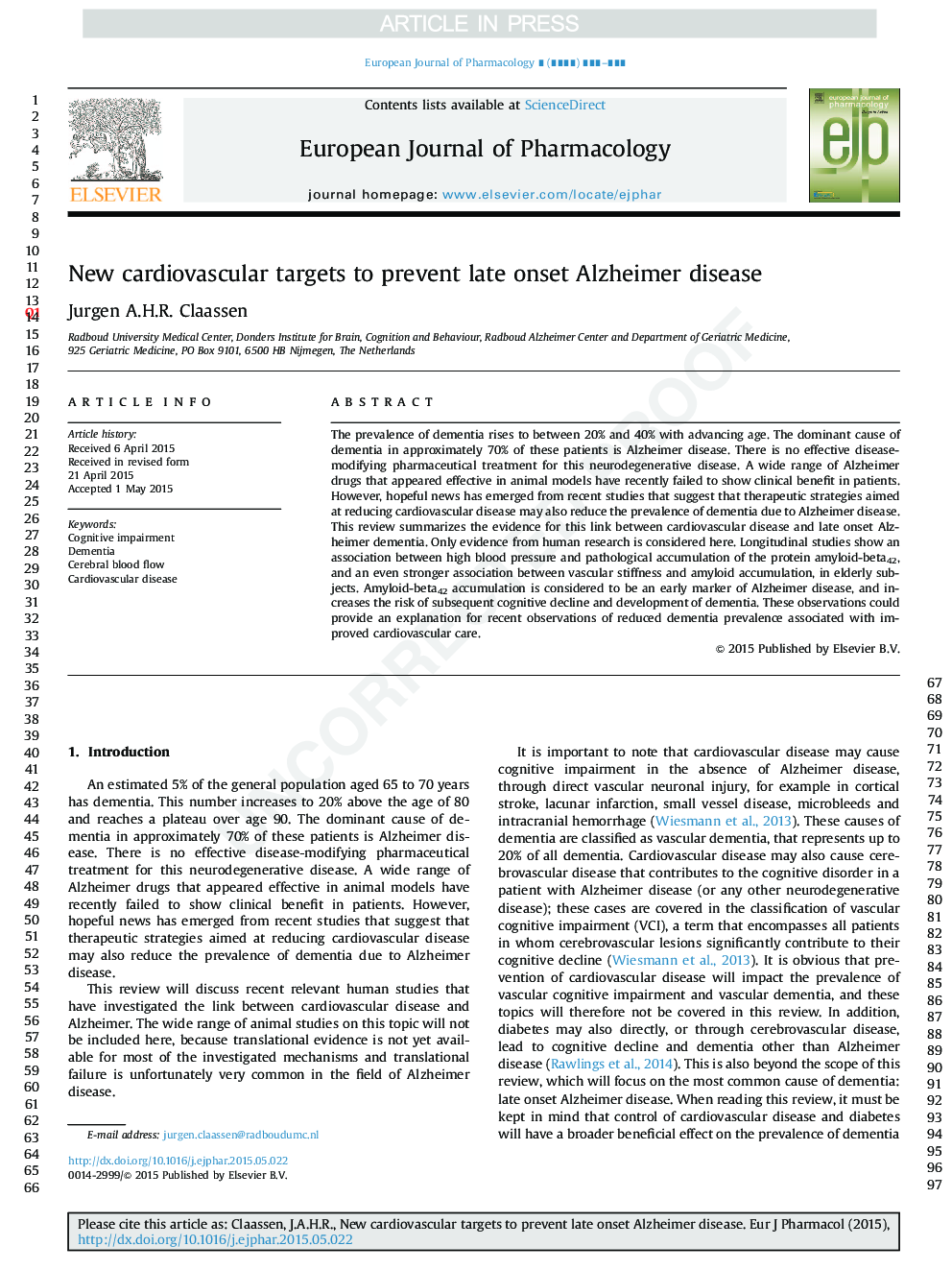| Article ID | Journal | Published Year | Pages | File Type |
|---|---|---|---|---|
| 5826844 | European Journal of Pharmacology | 2015 | 4 Pages |
Abstract
The prevalence of dementia rises to between 20% and 40% with advancing age. The dominant cause of dementia in approximately 70% of these patients is Alzheimer disease. There is no effective disease-modifying pharmaceutical treatment for this neurodegenerative disease. A wide range of Alzheimer drugs that appeared effective in animal models have recently failed to show clinical benefit in patients. However, hopeful news has emerged from recent studies that suggest that therapeutic strategies aimed at reducing cardiovascular disease may also reduce the prevalence of dementia due to Alzheimer disease. This review summarizes the evidence for this link between cardiovascular disease and late onset Alzheimer dementia. Only evidence from human research is considered here. Longitudinal studies show an association between high blood pressure and pathological accumulation of the protein amyloid-beta42, and an even stronger association between vascular stiffness and amyloid accumulation, in elderly subjects. Amyloid-beta42 accumulation is considered to be an early marker of Alzheimer disease, and increases the risk of subsequent cognitive decline and development of dementia. These observations could provide an explanation for recent observations of reduced dementia prevalence associated with improved cardiovascular care.
Related Topics
Life Sciences
Neuroscience
Cellular and Molecular Neuroscience
Authors
Jurgen A.H.R. Claassen,
